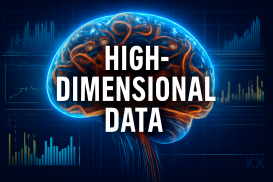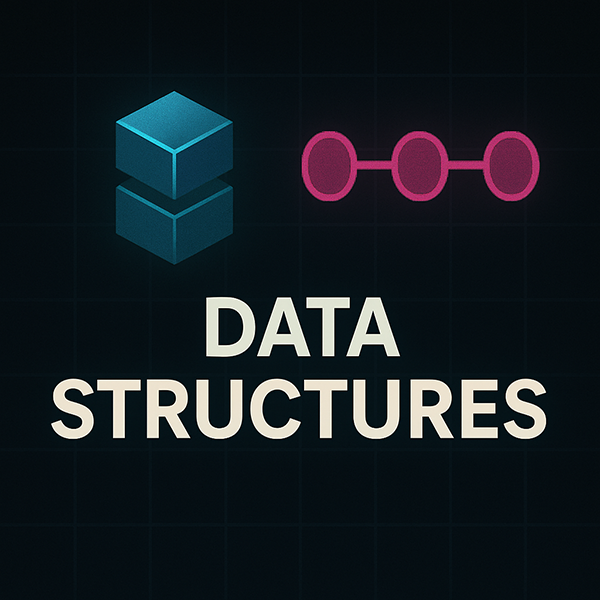Businesses are currently overwhelmed with data from everyday transactions, customer interactions, operational processes, and more. When properly managed, this valuable information can be used to improve decisions, innovate, and scale. Without proper systems though, things can quickly become disorganized — leading to missed opportunities, inefficiencies, and security risks.
This is where data management software enters the scene, as it helps businesses easily make sense of their data, transforming chaos into clarity. Management and teams can harness this software to drive smarter strategies, remain compliant, and stay ahead of the competition — all without becoming bogged down by a deluge of data.
Key takeaways
- The process of gathering, storing, and analyzing information is simplified with data management software.
- Enterprises use data management software to improve security, ensure compliance, and maintain operational efficiency.
- Overcoming challenges such as data silos and security risks requires a strategic approach and advanced tools.
- AI-powered data management increases efficiency by automating tasks and detecting data patterns.
- Choosing the right data management partner is crucial for scalability and long-term success.
What is data management software?
Think of data management software as a powerful set of tools that allows you to collect, organize, store, and analyze data. Not only that, but it also ensures that information is accurate, secure, and easily accessible.
Customer data platforms drive personalized marketing campaigns, privacy management tools ensure regulatory compliance, and enterprise solutions handle large-scale data operations.
Software systems streamline governance while organizing both structured and unstructured data, enabling quick access and analysis speeds to power strategic decision-making.
Common challenges in data management & how to overcome them
By proactively addressing challenges with the right tools and strategies, companies can turn their data into a powerful source of competitive advantage:
- Information that is trapped in separate systems impedes collaboration and insight. Modern platforms eliminate these silos by combining disparate data sources into a single pane of glass.
- Inaccurate or low-quality data can lead to costly mistakes, which is why top solutions implement AI-driven data validation.
- As businesses grow, so does their data. Scalability is key, and smart organizations invest in systems that can flex to meet demand without causing slowdowns or disruptions.
- With cyber threats becoming more advanced, security is more critical than ever. Strong encryption, strict access controls, and constant system monitoring are now essential safeguards.
Core components of data management software
Effective data management software includes several key components that enhance usability and security:
- Data Integration: Businesses can combine data from multiple sources to gain a unified view of their operations.
- Data Organization: The software classifies and structures data for easy retrieval and analysis.
- Data Processing: Real-time and batch processing capabilities can suit different business needs.
- Data Security: Encryption, authentication, and access controls ensure that sensitive information remains protected.
- Scalability: The software should have the ability to handle growing data volumes without compromising performance.
- Compliance: Software should ensure compliance with regulations such as GDPR and CCPA.
Each of these components has its nuances, but when combined and working harmoniously, they can unlock powerful business intelligence.
The role of AI in data management
AI has completely changed the way businesses handle data. It takes over repetitive tasks, reduces mistakes, and helps companies make smarter decisions.
For example, AI can quickly sort through information, fix errors, and highlight important trends. It also keeps data feeds up to date, making sure businesses always have accurate, real-time information (rather than relying on historical data silos).
Equally, data privacy management software that incorporates machine learning can detect potential cyber threats and recommend preventive measures, lowering the risk of data breaches.
Why enterprises need advanced data management solutions
Large and complex organizations must manage a deluge of data. To streamline operations and turn this tsunami of information into actionable insights requires a sophisticated enterprise data management software solution. Enterprises have a lot to gain by managing data with the most advanced solutions on the market:
- Real-time analytics enables enterprises to make quick, evidence-based decisions that keep them competitive.
- Automation allows teams to simplify routine tasks and focus on strategic work that drives growth.
- Smart data storage and retrieval reduces infrastructure costs and improves efficiency.
- Multi-layered security protects sensitive data from increasingly sophisticated cyber threats.
- Built-in compliance features help companies navigate complex regulations and avoid penalties.
The importance of finding the right data management partner
Data management is critical, but selecting the right partner can be tricky. Organizations should primarily consider industry expertise, scalability, and security.
Look for a partner that offers solutions tailored to your company’s specific requirements. Seamless integration with existing systems is also essential to ensure a smooth transition and minimal disruption. Finally, seek a partner that provides continuous support, system updates, and security improvements — helping to ensure you remain compliant with changing regulations.
Final thoughts
Customer data management software helps businesses make the most of their information. With smart automation, strong security, and easy integration, these systems keep companies competitive in a world where data drives success. Managing data isn’t just about storage — it’s about using it to grow and innovate.
By choosing the right partner and solving common challenges, businesses can work more efficiently, make better decisions, and set themselves up for lasting success.
KX focuses on real-time analytics and high-performance time-series data processing, which is viral for sectors like capital markets, defense, or healthcare. Book a demo today to see how KX can help turbocharge your data management.
Data management software FAQs
What industries benefit the most from advanced data management solutions?
Advanced data management benefits industries that handle large amounts of data, such as retail, healthcare, finance, and manufacturing. These solutions improve regulatory compliance, risk management, customer insights, and operational efficiency.
How do enterprises measure the ROI of data management software?
Businesses measure ROI through improved decision-making, reduced operational costs, enhanced security, and better regulatory compliance. Metrics such as reduced manual labor, faster data retrieval, and fewer security breaches contribute to determining the effectiveness of a data management solution.
How does data management software contribute to cost savings in an enterprise environment?
Data organization software lowers costs by automating processes, reducing errors, and optimizing data storage. It eliminates the need for redundant manual work and protects against the financial losses caused by data breaches or regulatory penalties.
How does real-time data processing work in an enterprise environment?
Real-time data processing lets businesses analyze and act on information the moment it’s created. This is crucial for industries like finance and e-commerce, where quick decisions can make a big difference. Unlike batch processing, which updates data at set times, real-time processing keeps businesses agile, helping them react instantly to market shifts and customer needs.
How does real-time data processing differ from batch processing, and why does it matter?
Real-time data processing analyzes and provides insights immediately, whereas batch processing processes data in scheduled cycles. Real-time processing is critical in industries that require immediate decisions, such as quant trading and online customer interactions, whereas batch processing is appropriate for periodic reporting and record-keeping.
Can AI completely replace human data analysts?
While AI enhances data analysis, it cannot fully replace human expertise. AI excels at identifying patterns and automating routine tasks, but human analysts provide context, strategic thinking, and ethical considerations that machines lack. The best approach is a combination of AI and human expertise to achieve optimal data insights.





